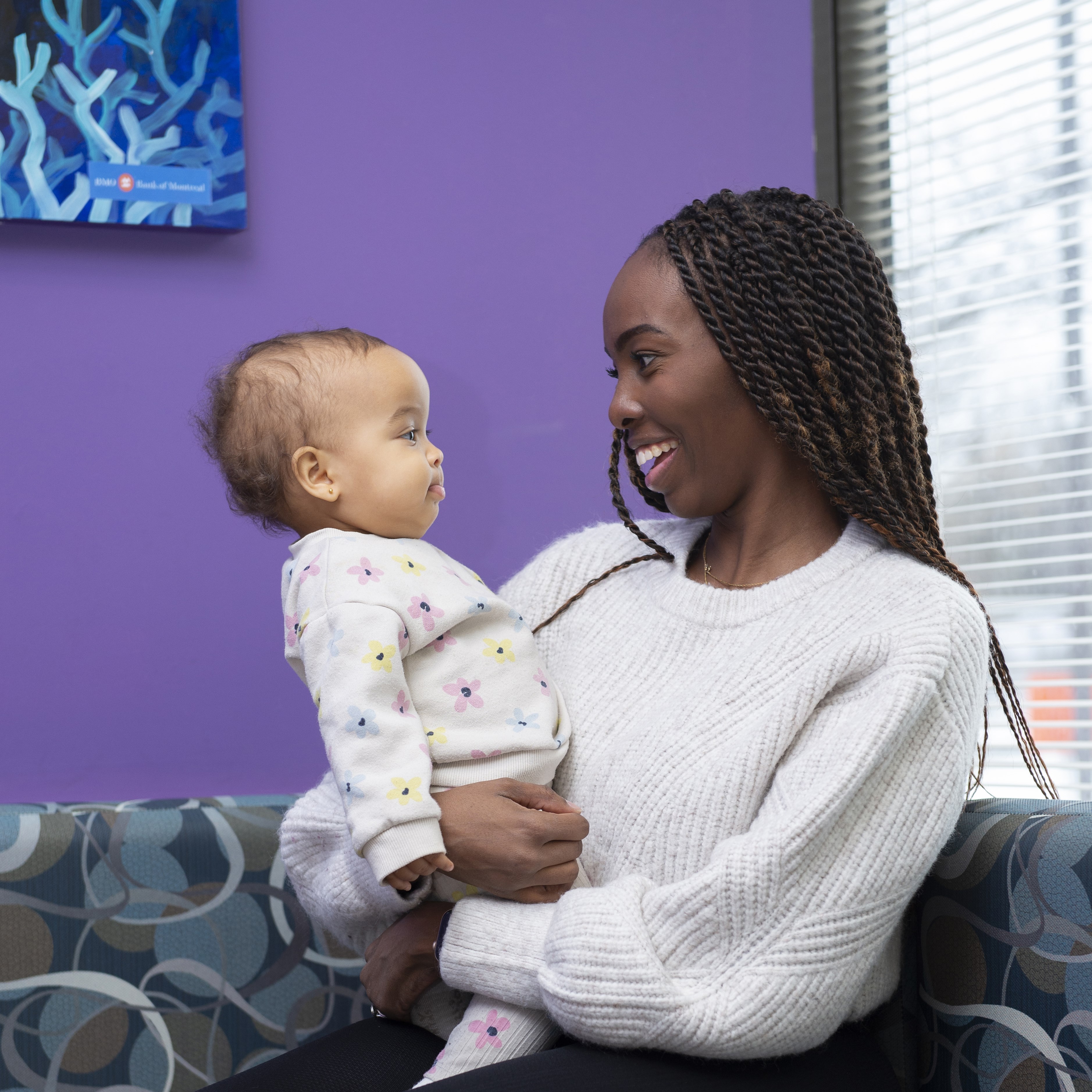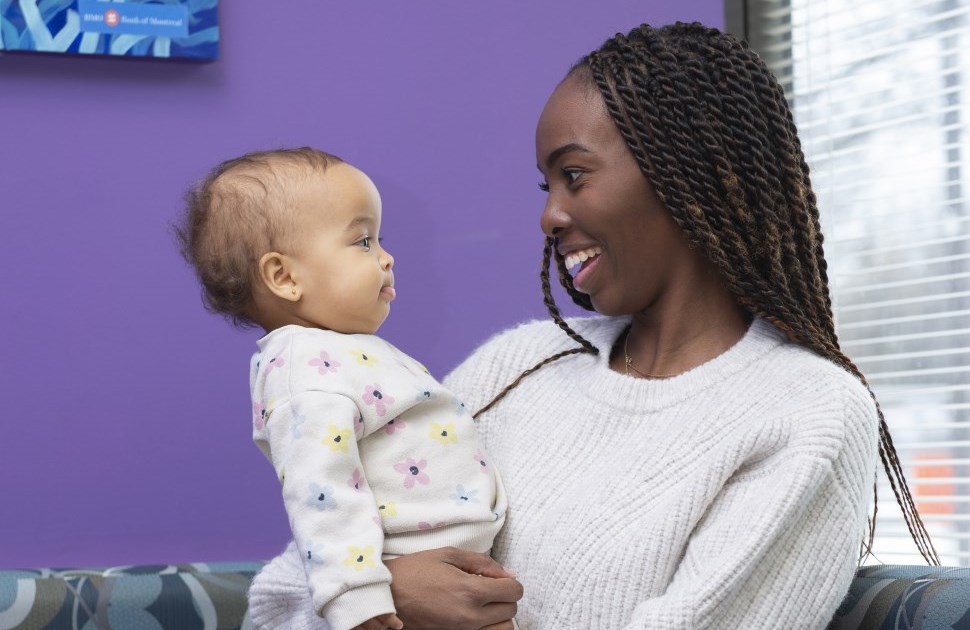
Parents experience sudden trauma, shock, fear and sadness when a baby requires intensive care immediately after birth, and they have to face many losses.
That first cuddle. The first feed. Those first minutes, hours, days, sometimes weeks and months together.
It’s then emotional and often overwhelming when their baby leaves the ICU.
“They go home and are coping with anxiety. They're coping with the trauma,” said Carol Openshaw, a social worker at CHEO.
Openshaw supports new parents, mostly mothers, while babies are seen in CHEO’s Neonatal Follow-up Clinic, which follows them until they’re four years old to ensure continued development.
Most of the babies seen in the clinic are born prematurely or experience a hypoxic event at birth, which temporarily deprives their brain of oxygen. This puts them at a higher risk for developmental delays.
While sleepless nights are common for all new parents, life can be especially challenging for families bringing a baby home after a stay in the NICU. That’s why support is offered to parents who express a desire for it during follow-up discussions with the clinic.
To provide that support, Openshaw offers one-on-one conversations and facilitates support groups where parents can openly share their struggles. She helps normalize these difficult experiences and empowers parents with practical skills to navigate them.
In late November 2024, a group of five mothers who participated in a support group shared how it helped them feel less isolated and more supported.
"We don't all have the same story, but there are similar events that happened within our stories that we can all relate to,” said Hayley Tom from Cornwall, Ont., whose daughter Avery was born prematurely with a condition called congenital subglottic stenosis — which means a narrow airway — and had to spend her first 143 days in hospital.
"It really unites us all," said Anjali Wadhera, whose baby Aisha was born prematurely at just 2.2 lb. because of severe Intrauterine Growth Restriction (IUGR).
Now 10 months old, Aisha is doing well, but Wadhera lauded the mental health support she has received through CHEO, both one-on-one and through the group.
“It’s been very instrumental in helping me become the mother that I am now,” she said.
Sumayya Jawed gave birth to twin girls prematurely in December 2022. Her baby Sarah was born in the zero percentile, also due to IUGR, and spent a month in the NICU, while her daughter Sophie spent 15 days there.
With no family in town, caring for twins with high needs has sparked a range of emotions including fear, guilt, and grief, she said. Along with support from the other moms in the group, counselling from Openshaw has been essential.
"The help that she’s given me, I became an extension of that, and I gave it to my husband,” said Jawed.
Kara Brush said when CHEO offered emotional support, she trusted the referral because it came from the same place that provided life-saving treatment for her son, Brooks. He was born with low oxygen and required care in the NICU.
Among the group of moms, Anne Madigan was the only one to have an older child.
Her daughter Mila, who had just turned one, was born prematurely by C-section. Madigan said the early postpartum experience in the NICU was a blur, calling it “survival mode.”
Mila returned home on Christmas Day 2023, which mom called a “miracle,” but the physical and emotional recovery for Madigan was challenging with a three-year-old boy needing his mom, too.
Once she learned about the chance for one-on-one support with Openshaw, and then the larger group chat, she felt a sense of community.
“Having that safe space was super instrumental,” said Madigan. “I'm just so grateful."
Supporting parents supplements the care provided to each baby, often providing a boost when their mental health might suffer as they try to meet difficult care needs.
Openshaw said it’s also important to support fathers who live with the trauma and face a lack of control while trying to care for their baby and partner.
She said it benefits CHEO families to provide early intervention and support because healthy parents are best able to meet the needs of their babies, our most vulnerable population.





